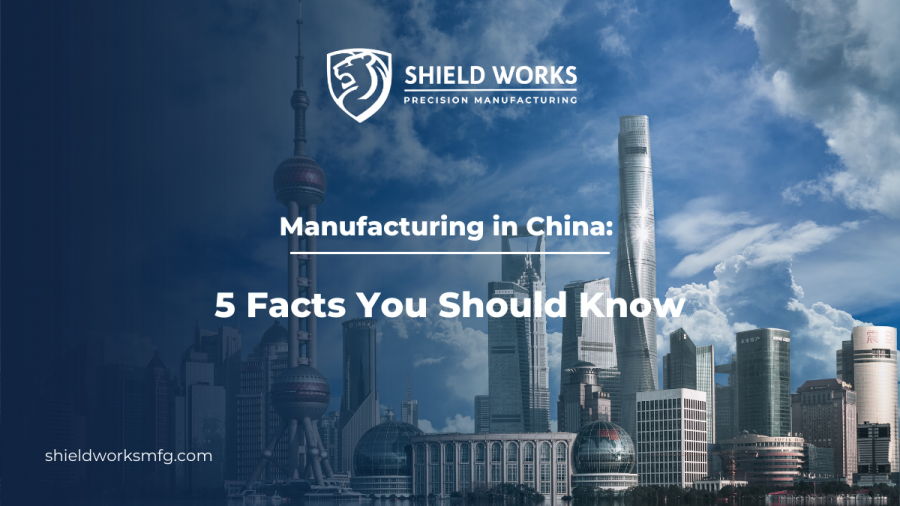Manufacturing in China: 5 Facts You Should Know

Though it seems like a lot of overseas companies outsource their production to China, there are plenty of misconceptions about Chinese manufacturing that can come back to haunt you.
Before you set out to reach a manufacturing partner in China, there are some facts you should know so you can prepare yourself for success instead of falling into the pitfalls. Let’s dive in.
1. Manufacturer VS. Supplier
If you’re looking to get your product made in China, you’ve probably already heard the terms “manufacturer” and “supplier” thrown around a lot.
They seem to be the same thing, right?
Yes, but also no!
Though the two words are closely related, they are not always meaning the same person in the manufacturing industry.
Generally speaking, a manufacturer would be considered more of an in-house entity that operates as your micro-factory with all the machinery and workers required to create your product from start to finish.
Suppliers are those who supply goods or services; but they can sometimes also act as manufacturers, wholesalers, or distributors who purchase existing brands and products (usually from somewhere else).
It’s imperative to make sure that you understand the difference between “manufacturer” and “supplier” and figure out what kind of services they can provide for your business.
If you’re a newcomer to the market, make sure to work with someone who doesn’t take advantage of inexperienced clients.
Before signing any contract or making any upfront payment, it is important to know if your manufacturing partner is qualified for what they produce and has an official business license to run a company in China.
2. Manufacturing Costs Vary Across Different Cities
Though you may think that manufacturing costs in China are lower than that of western countries, the prices in manufacturing among Chinese cities differ significantly.
One of the reasons for this is that China has undergone enormous changes and development in recent decades. This explains why the average monthly salary differs between cities or regions.
In this case, you may find out that some cities display relatively stable manufacturing cost patterns while some raise their manufacturing service fee due to the increment in labor costs and land prices.
The other main reason is that China is paying great attention to improving its high-end manufacturing capabilities. Now, more and more high-tech manufacturing factories are well-established to pursue productivity and lower costs.
3. Finding the Right Manufacturer in Your Area
Locating for a manufacturing company that produces what you need is easy unless you confirm everything you need beforehand.
The main thing you should know is that many manufacturers usually stick to one specific type of product.
For example, it may be hard to find someone who can make “home appliances“ but it’s easier to reach a blender manufacturer who specializes in this field for years.
See the difference?
So when reaching a potential manufacturer in China, keep in mind to find someone who has experience and expertise in your product area. Otherwise, it will end up costing you even more than if you do the job yourself.
4. Don’t Skip Quality Control
Product quality is a major factor for western businesses because defective products can lead to financial losses as well as angry customers who will complain about your company sending them an unsatisfied product.
When outsourcing your production to China, it isn’t enough just to send your idea or design to a factory and expect them to produce the item correctly – even though you deeply trust them.
Make sure you’re thoroughly involved in each step of production and conduct quality control so that you can be confident that the manufacturer is capable to deliver products that meet your expectations and the quality standards.
5. Delivery Delays Can Be Normal
Manufacturers often negotiate with multiple foreign companies at once, so there’s no guarantee they will give you their full attention or work quickly enough to meet your deadlines.
Make sure your manufacturer gives you a detailed production plan so you have an idea of how long it will take to produce your items.
Another factor worth considering is how long it will take for the items to arrive once they are shipped.
The delivery time can vary depending on where the factory is located, where you want to receive the product, and even if there are any Covid cases in the region
So you have to remain realistic about the lead time and deadline. Keep communicating with your manufacturing partner so you can receive an update on your production process.
The Solution For Your Manufacturing Project
If you haven’t yet worked with a manufacturer in China, you have to list your needs and expectations before making a final decision.
Also, never choose the one who offers the lowest price, work with those who have long-term experience and know how to help your business.
Shield Works can be your best manufacturing partner. With our British ownership and management background, we take pride in our over 17 years of international project experience and excellent team. Contact us for a no-cost consultation!
